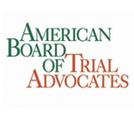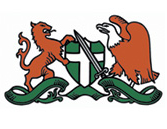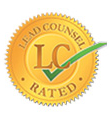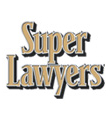Auto accidents are a common occurrence in California. The state has the highest number of busy highways and reckless drivers in the country. Involvement in a car accident can be a traumatizing experience. Even when your accident does not result in injuries or death, you could suffer a substantial loss through vehicle and property damage. The extent of the damage to your vehicle will vary depending on the type and seriousness of the collision.
Damage to or total loss of your vehicle in an accident can cause financial difficulties. Unfortunately, most car accidents result from the negligence of other drivers or road users. For this reason, your loss will likely result from another person’s actions. Paying your car repair bills is a common concern for many victims of auto accidents.
There are many options through which your vehicle could be repaired. This includes contacting your insurance provider, filing a claim with the at-fault party’s insurance company, or negotiating directly with the person who caused the accident. Paying your car repair bills could be an uphill task, regardless of the option you explore. Therefore, hiring and retaining a skilled car accident attorney is critical.
Payment for Your Car Repairs After an Accident
In addition to causing injuries and sometimes death, car accidents result in substantial property damage. Damage to your vehicle can take a financial toll on you. If your vehicle is damaged in an accident, you do not have to pay for the repairs out of pocket.
Instead, you can recover compensation from auto insurance. The insurance options you have for payment of your car repair bills include:
Optional Collision Coverage
If you have optional insurance with your auto insurer, you must pay for your car's repairs or have them compensate you for the vehicle damage after an accident. The compensation, in this case, will not be impacted by fault in the case.
Although optional collision coverage is not mandatory in California, most individuals are valuable. This type of insurance claim is the fastest way to have your vehicle repaired after a collision. The insurer can then seek compensation from the at-fault party’s insurer.
At-Fault Party’s Insurer
If you are involved in a car accident caused by another person's negligence or wrongful act, the liable party will be responsible for your injuries and property damage. Therefore, you can find out if the other driver was insured and file a claim for payment of your car repair.
Filing a third-party claim allows you to hold the party liable for your accident and their insurance company accountable for the losses they caused you. Although another person’s insurance company makes a third-party claim, your insurer will help you kick-start the claim process.
When filing a third-party insurance claim for vehicle repair costs, you must provide the following information about the driver who caused your accident:
- Their name and phone number.
- Their license and registration information.
- The fault party’s auto insurance information.
- Vehicle information.
Before you get your vehicle repair bills paid in a third-party insurance claim, you must present evidence that is sufficient to establish that their policyholder’s negligence resulted in your accident and damages.
Your Insurance Provider
Under California law, all motorists must carry minimum vehicle insurance. This helps cover injuries and damages to themselves and other road users in the event of an auto accident. Seeking compensation from your vehicle insurance is an option for you when you seek to repair your vehicle after your accident.
Most vehicle insurers require you to notify them if you are involved in an accident. A violation of this requirement could impact your ability to recover compensation from the policy. Seeking payment of your car repair bills by your insurance company is suitable if the at-fault party is uninsured or their policy is insufficient to cover the damages.
Not all car accidents are the result of collisions between multiple vehicles. Your insurance provider can cover your damages if you suffer a single-vehicle accident by hitting an obstacle. If your vehicle damage is not extensive, paying it without making a claim would be best. This is because claiming compensation for car repairs could raise your insurance premiums.
Dealing With Insurance Adjusters After a Car Accident
Even when the cause of the accident is known, most fault parties and their insurance companies could deny their liability. This will create difficulties as you attempt to pay your car repair bills. California is a fault state. Therefore, the person liable for the accident will compensate victims for their losses, including property damage.
One of the options you can explore to pay for your car repairs is contacting the at-fault party's insurance company. Mostly, the insurance company will have been informed about the accident and may have a plan to downplay their client’s role in it. Regardless of how sympathetic an insurance adjuster sounds, they ensure you receive the least compensation possible.
You must deal with and outsmart these adjusters if you seek third-party insurance compensation for your vehicle's damage. This helps you secure rightful compensation for the costs incurred when repairing your car. You can either negotiate a settlement with the insurance company or file a claim in court. Filing a civil claim leaves the decision about compensation solely to the judge.
The following are tips for dealing with insurance adjusters to avoid compromising your case:
Don’t Admit to Fault for the Accident
Like in personal injury cases, fault plays a significant role in determining how you will cover the cost of car repairs after an accident. The at-fault party in the accident will be responsible for all the damages, including car repairs. The at-fault party’s insurance company may attempt to lure you into accepting liability for the accident. This will eliminate their liability for covering the cost of your vehicle's repairs.
Seek Legal Guidance
Seeking a competent car accident attorney's guidance is one way to ensure that your interactions with the insurance company do not compromise your compensation claim. Your car accident lawyer will guide you on what to say and the information to divulge to the insurance company. Most car accident lawyers are familiar with the tactics used by insurance companies to minimize your claim.
Avoid Speedy Settlements
You can negotiate a settlement for car repairs with the insurance company out of court. If you choose this option, the insurance company may exploit your vulnerability after the accident to offer a low settlement. You are not obligated to accept a settlement that would not cover the cost of your repairs.
You should avoid accepting a fast settlement. Before approaching the insurance company to seek compensation for the losses caused by the negligent acts, you should seek car repair estimates from multiple repair shops. Your vehicle will be assessed to determine the level of damage and the amount needed for repairs. Going into a negotiation with the right estimate helps ensure that you receive a fair settlement.
Document the Car Accident
You must document your car accident by taking photos and videos of the scene. Photographic evidence cannot be disputed in your claim. This evidence can help establish liability for the accident and allow you to recover compensation for vehicle repairs.
Obtaining Car Repair Estimates after an Accident
If you file a claim for vehicle repairs after an accident, you will need car repair estimates. This helps determine the extent of vehicle damage and the cost incurred when you choose to repair the vehicle. A repair estimate is a breakdown of all the repairs needed and their prices to make your car safe and usable.
If you obtained the vehicle with your financing, your lien holder will require you to repair the vehicle and restore it to its original condition. When you file a claim with your insurance company, they can help you arrange for vehicle repair estimates. Your car repair costs will vary depending on labor costs, parts damaged in the accident, and the time needed to complete the repairs.
Depending on the nature of your policy, you may be required to give your insurance company the details of the car repair shop where you are considering fixing your vehicle. While some insurance companies may have a list of recommended repair shops, they should not coerce you into a specific shop.
If you are scheduled to have your car repair bills paid by your insurance company, the company will work with the repair shop you choose by directly paying the cost of repairs. The choice to repair your vehicle after an accident lies with you. However, if you have a lien holder, you must check with them before ignoring the car damage. If you prefer receiving a cash settlement, the money will be paid minus the reasonable deductions.
Determining Fault for an Auto Accident in California
Before an insurance company pays for your vehicle's damage, the fault for your accident must be established. The other party's insurance company will only be responsible for your vehicle repair bills if their client is found liable for your accident. Insurance adjusters for all parties invoked in the collision will examine the following pieces of evidence to determine liability:
- Statements from witnesses: If individuals witnessed your accident, you can obtain their contact information and ask them to testify for your claim.
- The statements you make to the insurance company. You must be careful when interacting with insurance adjusters after an accident. Your admission of fault can be used against you when establishing liability.
- Surveillance video from the accident. If your accident occurred in an area covered by surveillance, the footage can be used to determine how the accident occurred and identify the liable party.
- Police report. After an accident involving substantial property damage, you must contact the police. On arrival at the accident scene, the officers will assess the situation and write a report. Through this report, the at-fault party can be identified.
The Value of Your Car and Repair Costs After an Accident
If your car is damaged in an accident, you must understand that the insurance company will pay for repairs up to the vehicle's value at the time of the accident. If the repair estimates provided by two or more shops show that the repair cost exceeds the vehicle value, they will either pay the actual cash value or declare it a total loss.
While claiming damages for the cost of vehicle repairs, the original vehicle value will not impact the amount you stand to gain from the claim. Additionally, the insurance policy that covers your vehicle damage repairs will only compensate you up to the limit.
Frequently Asked Questions on Payment of Car Repair Bills After a Car Accident in California
Most car accidents result in serious injuries or deaths. Most people who suffer injuries will also have severe property damage. After the accident, most victims seek medical attention and file personal injury claims. However, even when you are lucky enough to leave the accident without any injuries, you must deal with vehicle damage. The thought of incurring extra costs for vehicle repair due to another person’s negligence may be difficult to comprehend. The following are frequently asked questions on vehicle repair bill payments after a collision:
-
How do I prove vehicle damage after an accident in California?
When you seek to have your car repair bills paid by your insurance or the at-fault party's insurance provider, you must prove the extent of the damage done to your car by the collision. Presenting a video or photos of the accident is important in proving your damage. These photos will show the damage to all the cars while they are still at the scene.
If you are not injured in a car accident, you should take pictures that can help show how the accident occurred. In addition to photographic evidence, you should collect the following information from the accident:
- When and where the collision occurred. This could help you or law enforcement obtain security footage of the area for a clear account of the events before and after the accident.
- The direction in which each vehicle involved in the collision was traveling.
- Traffic and weather conditions at the time of the accident. Sometimes, road conditions are a significant contributor to auto accidents. If poor road conditions caused the accident, you may have to file a claim against the authorities responsible for its maintenance.
- Information on what the other drivers were doing. This could include texting while driving and other factors that could indicate negligence.
-
What happens if the fault party in my accident is uninsured?
California law has strict laws on obtaining insurance coverage before you operate a vehicle on a highway in the state. While most drivers adhere to these regulations, an insurance research council found that up to an eighth of drivers were uninsured. If the individual responsible for your accident is uninsured or their insurance is too low to cover your vehicle repairs, it would be best to file a claim with your insurer.
-
Will my insurance premiums increase if I seek compensation for car repair bills from my insurer?
Under Proposition 103, insurance companies cannot increase your premium if you contact them to pay for your vehicle's repairs after an accident where you were not at fault. Whether or not being at fault for an accident will change your insurance policy terms depends on the following factors:
- The number of claims you have made on the policy. If you are in constant accidents and it is not your first time seeking compensation from your insurer, your insurer can increase the premiums or cancel your policy.
- The duration you have been with your current insurer. Different insurance policies have rules on the circumstances under which your policy can change. Your insurer may not increase your premiums if you have been with them for a while.
- The types of coverage you have. While California law only requires basic insurance from drivers, you can have comprehensive and optional collision coverage. The type of policy you hold will determine how your premium changes after an accident.
Find a Skilled Los Angeles Car Accident Lawyer Near Me
If you are a California car accident victim, paying your vehicle repair bills is a significant concern. Damage to your vehicle may range from minor to complete loss, depending on the severity of the impact. Fortunately, all motorists in the state are required to carry minimum insurance. For this reason, you can pay your car repair bills through your insurance company or the at-fault party's insurance provider.
Proving that another person caused the accident and establishing the extent of damage to your vehicle is more complex. You need to seek vehicle repair estimates and obtain other evidence to support your claim for compensation. You will have to deal with insurance companies unwilling to accept liability for your car damage or try to shift the blame for the accident to you.
The aftermath of a car accident is challenging enough without dealing with insurance companies and vehicle repair shops. Therefore, you must have a competent car accident attorney to guide you through your claim. At Los Angeles Car Accident Attorney, we offer top-notch legal insight to all our clients battling car accident claims in Los Angeles, CA. Call us at 424-237-3600 to discuss the details of your claim.






